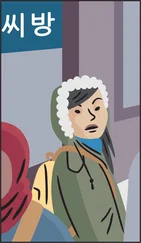When I showed my beautiful plant to Stentor, he was most profuse in his apology and came to my rooms every day to watch it unfold and develop, but the majority of people, long used to business-like efficiency, were intolerant of the sentimental emotions that swayed a small minority, and I was commanded to dispose of the lily. But a figurative seed had been planted in the human heart, a seed that could not be disposed of so readily, and this seed ripened and grew until it finally bore fruit.
VII. Ex Terreno [3] 19.27 Latin: from the earth.
It is a very different picture of humanity that I paint ten years after the last entry in my diary. My new vocation is farming, but it is farming on a far more intensive scale than had been done two thousand years ago. Our crops never fail, for temperature and rainfall are regulated artificially. But we attribute our success principally to the total absence of insect pests. Our small agricultural areas dot the country like the parks of ancient days and supply us with a type of food, no more nourishing, but more appetizing than that produced in the laboratories. Truly we are living in a marvelous age! If the earth is ours completely, why may we not turn our thoughts toward the other planets in our solar-system? For the past ten or eleven years the Venusians have repeatedly urged us to come and assist them in their battle for life. I believe it is our duty to help them.
Tomorrow will be a great day for us and especially for Stentor, as the new interplanetary television is to be tested, and it is possible that for the first time in history, we shall see our neighbors in the infinity of space. Although the people of Venus were about a thousand years behind us in many respects, they have made wonderful progress with radio and television. We have been in radio communication with them for the last half century and they shared with us the joy of the establishment of our Eden. They have always been greatly interested in hearing Stentor tell the story of our subjugation of the insects that threatened to wipe us out of existence, for they have exactly that problem to solve now; judging from their reports, we fear that theirs is a losing battle. Tomorrow we shall converse face to face with the Venusians! It will be an event second in importance only to the first radio communications interchanged fifty years ago. Stentor’s excitement exceeds that displayed at the time of the discovery of the seeds.
Well it is over and the experiment was a success, but alas for the revelation!
The great assembly halls all over the continent were packed with humanity eager to catch a first glimpse of the Venusians. Prior to the test, we sent our message of friendship and good will by radio, and received a reciprocal one from our interplanetary neighbors. Alas, we were ignorant at that time! Then the television receiving apparatus was put into operation, and we sat with breathless interest, our eyes intent upon the crystal screen before us. I sat near Stentor and noted the feverish ardor with which he watched for the first glimpse of Wanyana.
At first hazy mist-like spectres seemed to glide across the screen. We knew these figures were not in correct perspective. Finally, one object gradually became more opaque, its outlines could be seen clearly. Then across that vast assemblage, as well as thousands of others throughout the world, there swept a wave of speechless horror, as its full significance burst upon mankind.
The figure that stood facing us was a huge six-legged beetle, not identical in every detail with our earthly enemies of past years, but unmistakably an insect of gigantic proportions! Of course it could not see us, for our broadcaster was not to appear until afterward, but it spoke, and we had to close our eyes to convince ourselves that it was the familiar voice of Wanyana, the leading Venusian radio broadcaster. Stentor grabbed my arm, uttered an inarticulate cry and would have fallen but for my timely support.
“Friends of Earth, as you call your world,” began the object of horror, “this is a momentous occasion in the annals of the twin planets, and we are looking forward to seeing one of you, and preferably Stentor, for the first time, as you are now viewing one of us. We have listened many times, with interest, to your story of the insect pests which threatened to follow you as lords of your planet. As you have often heard us tell, we are likewise molested with insects. Our fight is a losing one, unless we can soon exterminate them.”
Suddenly, the Venusian was joined by another being, a colossal ant, who bore in his fore-legs a tiny light-colored object which he handed to the beetle-announcer, who took it and held it forward for our closer inspection. It seemed to be a tiny ape, but was so small we could not ascertain for a certainty. We were convinced, however, that it was a mammalian creature, an “insect” pest of Venus. Yet in it we recognized rudimentary man as we know him on earth!
There was no question as to the direction in which sympathies instinctively turned, yet reason told us that our pity should be given to the intelligent reigning race who had risen to its present mental attainment through eons of time. By some quirk or freak of nature, way back in the beginning, life had developed in the form of insects instead of mammals. Or (the thought was repellent) had insects in the past succeeded in displacing mammals, as they might have done here on earth?
There was no more television that night. Stentor would not appear, so disturbed was he by the sight of the Venusians, but in the morning, he talked to them by radio and explained the very natural antipathy we experienced in seeing them or in having them see us.
Now they no longer urge us to construct ether-ships and go to help them dispose of their “insects.” I think they are afraid of us, and their very fear has aroused in mankind an unholy desire to conquer them.
I am against it. Have we not had enough of war in the past? We have subdued our own world and should be content with that, instead of seeking new worlds to conquer. But life is too easy here. I can plainly see that. Much as he may seem to dislike it, man is not happy, unless he has some enemy to overcome, some difficulty to surmount.
Alas my greatest fears for man were groundless!
A short time ago, when I went out into my field to see how my crops were faring, I found a six-pronged beetle voraciously eating. No—man will not need to go to Venus to fight “insects.”
1928
LESLIE F. STONE
The Conquest of Gola

HOLA, my daughters (sighed the Matriarch) it is true indeed, I am the only living one upon Gola who remembers the invasion from Detaxal, I alone of all my generation survive to recall vividly the sights and scenes of that past era. And well it is that you come to me to hear by free communication of mind to mind face to face with each other.
Ah, well I remember the surprise of that hour when through the mists that enshroud our lovely world, there swam the first of the great smooth cylinders of the Detaxalans, fifty tas * * Since there is no means of translating the Golan measurements of either length or time we can but guess at these things. However, since the Detaxalan ships each carried a thousand men it can be seen that the ships were between five hundred and a thousand feet in length.
in length, as glistening and silvery as the soil of our land, propelled by the man-things that on Detaxal are supreme even as we women are supreme on Gola.
In those bygone days, as now, Gola was enwrapped by her cloud mists that keep from us the terrific glare of the great star that glows like a malignant spirit out there in the darkness of the void. Only occasionally when a particularly great storm parts the mist of heaven do we see the wonders of the vast universe, but that does not prevent us, with our marvelous telescopes handed down to us from thousands of generations before us, from learning what lies across the dark seas of the outside.
Читать дальше













